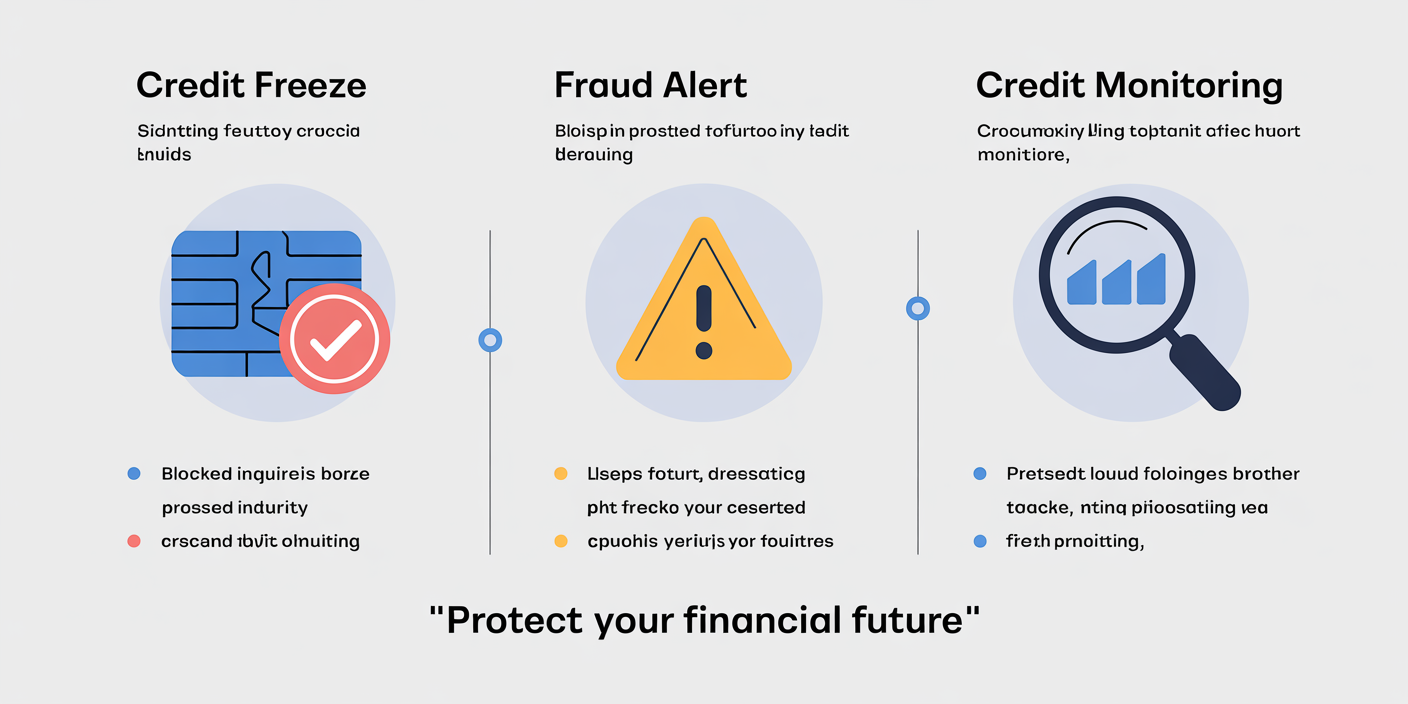Smart Ways to Negotiate Medical Debt Without Hurting Your Credit
Anúncios
Medical debt is a leading cause of financial distress for millions of Americans. According to a 2023 report by the Consumer Financial Protection Bureau, nearly 43 million Americans have medical debts in collections. The challenge many face, however, is how to manage or negotiate these debts without causing long-term damage to their credit scores, which can affect future borrowing, housing, and even employment opportunities. This article explores strategic, practical tactics to negotiate medical debt effectively while safeguarding your credit rating.
Understanding Medical Debt and Its Impact on Credit Scores
Medical debt differs from other types of debt in several key ways. Most notably, medical debts often arise unexpectedly due to emergencies rather than planned spending, making them particularly challenging to manage. Additionally, credit reporting agencies—such as Experian, TransUnion, and Equifax—tend to have a grace period before listing medical debts on reports, usually around 180 days. This allows consumers time to resolve disputes or negotiate terms before the debt affects their credit.
Anúncios
A survey conducted in 2022 by the Kaiser Family Foundation found that 28% of adults had either personally experienced or knew someone who had serious problems paying medical bills. Yet, despite their prevalence, many consumers remain unaware that accurate negotiation can reduce the impact on their credit scores profoundly.
For example, consider Claire, a 35-year-old teacher, who received an unexpected $4,500 emergency room bill. By contacting the hospital billing office and negotiating a payment plan before the debt was sent to collections, Claire avoided any negative impact on her credit, maintained her credit score above 700, and repaid the debt over six months. This proactive engagement contrasts sharply with others who ignore notices until their credit scores have dropped due to collection activities.
Anúncios
Assessing Your Medical Debt and Validating Charges
Before negotiating, it’s essential to thoroughly review and validate your medical bills. Unauthorized, duplicate, or incorrect charges are common in medical billing errors, with the Medical Billing Advocates of America estimating up to 80% of medical bills contain errors. Identifying these mistakes can significantly reduce your debt burden.

Start by obtaining an itemized bill and cross-referencing it with your records, including insurance Explanation of Benefits (EOB). Question charges that seem inflated or unrelated to your treatment. For instance, Tom, a patient with a minor surgery bill of $8,000, discovered that he was billed for two nights in the hospital when he had only stayed for one. After confirming this error, he successfully reduced his bill by $3,200.
Once you gather evidence of errors or unnecessary charges, contact the billing department or your insurance company with a formal dispute. In many cases, billing clerks and patient advocates are willing to correct issues to prevent delayed or non-payment complications.
Comparative Table: Common Medical Billing Errors vs. Their Impact
| Medical Billing Error | Typical Frequency (%) | Average Cost Impact per Case | Potential Credit Impact |
|---|---|---|---|
| Duplicate charges | 15% | $200 – $1,000 | May lead to overpayment, delayed payments, collections notifications |
| Incorrect coding or procedure fees | 35% | $300 – $4,000 | Overstated debt amount increases risk of collection reporting |
| Charges for services not rendered | 10% | $100 – $1,500 | Misrepresentation can lead to disputes, negatively impacting credit if unresolved |
| Unbundled procedures | 20% | $500 – $3,000 | Inflated bills cause confusion, delaying payment and credit risk |
Negotiating Directly with Healthcare Providers

After validating your debt, reaching out to the healthcare provider for negotiation is the next step. Hospitals and clinics often have financial assistance programs or sliding scales based on income. Furthermore, many providers prefer settling debts rather than pursuing collections, which can damage their reputation and add administrative costs.
Negotiation tactics include requesting a one-time lump sum discount, setting up affordable monthly payment plans, or asking for a reduction of the total owed based on your financial situation. According to a report from the National Foundation for Credit Counseling, 64% of medical providers were willing to negotiate payment terms when contacted directly by patients experiencing financial difficulties.
Sarah, a single mother facing a $3,000 dental bill, contacted her provider and negotiated a 30% discount by agreeing to pay $2,100 upfront. This approach saved her money and ensured the provider received timely payment, keeping her account out of collections.
Example Negotiation Script “Hello, my name is Sarah, and I’m trying to find a way to manage my dental bill. My current income is limited due to caregiving responsibilities, and I would like to discuss options for either reducing the bill or setting up a payment plan that won’t negatively affect my credit.”
Maintaining calm and clear communication is essential. Information about your income, expenses, and hardships will increase the chance of a positive negotiation outcome.
Utilizing Medical Debt Advocacy and Third-Party Negotiators
If negotiations seem daunting or unsuccessful when handled personally, medical debt advocates or professional negotiators can provide expert assistance. These professionals specialize in identifying bill discrepancies, communicating with providers, and securing favorable payment agreements.

For example, the nonprofit group RIP Medical Debt has purchased and forgiven millions of dollars in medical debt for struggling individuals since its founding. Similarly, companies like MediqDebt and ConsumerMedical offer negotiation services, sometimes lowering bills by up to 50%.
However, it’s important to vet third-party services carefully. While some charge fees for successful negotiations, others operate on a contingency basis or offer free help for qualifying individuals. Always request transparency about costs and verify credentials before signing contracts.
Exploring Debt Consolidation and Medical Debt Removal Options
In some cases, consolidating medical bills into a single loan or credit product might help manage payments without hurting credit scores. Personal loans with lower interest rates compared to credit cards or collection costs can provide easier budgeting and avoid defaults.
Below is a comparison between common debt management options for medical bills:
| Option | Interest Rates | Impact on Credit | Pros | Cons |
|---|---|---|---|---|
| Personal Loan | 5% – 15% | Usually positive if payments made on time | Single payment, lower interest than credit cards | May require good credit score to qualify |
| Credit Card | 15% – 25% | Potentially negative if balances are high | Easy access; rewards | High interest rates, risk of overspending |
| Medical Debt Consolidation | Varies by lender | Neutral to positive if payments on time | Lower monthly payments, combines debts | May include fees, lengthens repayment period |
| Debt Settlement Services | N/A (negotiated reduction) | Negative hit if not managed properly | Can reduce amount owed | May damage credit score or incur fees |
Furthermore, some states have laws that protect consumers from unfair medical debt reporting practices. The No Surprises Act, effective since 2022, limits certain out-of-network billing practices and creates channels to dispute charges before they appear on credit reports.
Keeping Your Credit Safe Amid Negotiations
It is crucial to maintain open communication and prompt payments once you have established a repayment plan, as agreed terms often directly impact credit reporting. Ensure that the creditor or collection agency agrees to report your account status as “paid” or “paid as agreed” to credit bureaus.
Another strategy is requesting a “Goodwill Deletion.” This is when after paying off medical debt, you ask the creditor to remove the record from your credit report as a goodwill gesture. While not guaranteed, many creditors and collection agencies comply, especially if you have a strong payment history and good standing.
According to FICO, paid medical collection accounts no longer impact credit scores—a change implemented since 2023—because medical debts tend to be less predictive of default compared to other types of debt. This update shows that negotiating and paying off medical bills promptly will reduce risk to your credit score over time.
Future Perspectives: Technology and Policy Changes Shaping Medical Debt Negotiation
Looking ahead, advances in technology and policy reforms are transforming how consumers manage medical debt. Digital health finance platforms, like ClearBalance and Simplee, integrate medical billing, insurance claims, and payment options to improve transparency and ease patient negotiations.
Artificial intelligence is being deployed to detect billing errors faster and suggest optimal negotiation strategies based on user data and historical outcomes. This can help patients like you to proactively engage with providers before debts escalate.
Policy initiatives focusing on medical debt forgiveness, caps on hospital charges, and expanded insurance coverage promise to reduce the overall volume of unpaid medical debt. For example, states like California have started implementing laws to limit surprise medical bills and requires hospitals to provide clear financial assistance guidelines upfront.
While challenges remain, especially for those uninsured or underinsured, the landscape for managing and negotiating medical debt without damaging credit looks increasingly hopeful. Staying informed, empowered, and proactive will help consumers avoid the pitfalls of medical debt and protect their financial futures.
By understanding your rights, leveraging negotiation tactics, and using available resources, managing medical debt becomes not only feasible but also an opportunity to improve your financial well-being without damaging your credit score. Taking control early, validating bills rigorously, and communicating transparently will ensure a smoother path through this common financial hurdle.



Post Comment